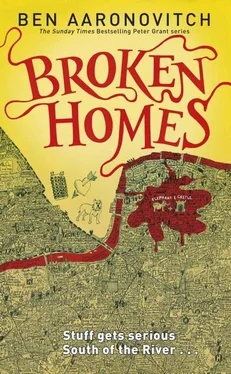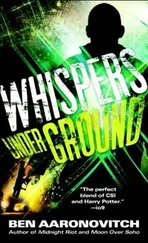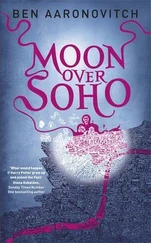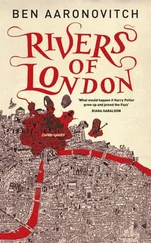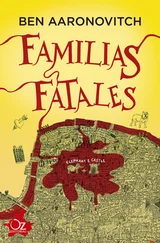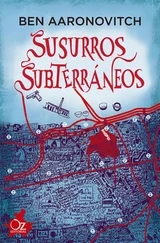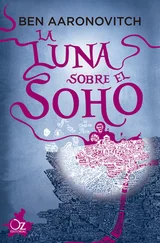Ben Aaronovitch - Broken Homes
Здесь есть возможность читать онлайн «Ben Aaronovitch - Broken Homes» весь текст электронной книги совершенно бесплатно (целиком полную версию без сокращений). В некоторых случаях можно слушать аудио, скачать через торрент в формате fb2 и присутствует краткое содержание. Год выпуска: 2013, ISBN: 2013, Издательство: Orion, Жанр: sf_fantasy_city, на английском языке. Описание произведения, (предисловие) а так же отзывы посетителей доступны на портале библиотеки ЛибКат.
- Название:Broken Homes
- Автор:
- Издательство:Orion
- Жанр:
- Год:2013
- ISBN:9780575132498
- Рейтинг книги:4 / 5. Голосов: 1
-
Избранное:Добавить в избранное
- Отзывы:
-
Ваша оценка:
- 80
- 1
- 2
- 3
- 4
- 5
Broken Homes: краткое содержание, описание и аннотация
Предлагаем к чтению аннотацию, описание, краткое содержание или предисловие (зависит от того, что написал сам автор книги «Broken Homes»). Если вы не нашли необходимую информацию о книге — напишите в комментариях, мы постараемся отыскать её.
Broken Homes — читать онлайн бесплатно полную книгу (весь текст) целиком
Ниже представлен текст книги, разбитый по страницам. Система сохранения места последней прочитанной страницы, позволяет с удобством читать онлайн бесплатно книгу «Broken Homes», без необходимости каждый раз заново искать на чём Вы остановились. Поставьте закладку, и сможете в любой момент перейти на страницу, на которой закончили чтение.
Интервал:
Закладка:
‘I’m not sure we should eat stuff when we don’t know what it is,’ said Lesley.
‘I’m not the one who bought her the Jamie Oliver book for Christmas,’ I said.
‘No,’ said Lesley. ‘You’re the one who wanted to get her Heston Blumenthal.’
Nightingale, trained — as he pointed out — from an early age to eat what was put in front of him, tucked in with enthusiasm. Given that Molly was hovering in the doorway, me and Lesley had little choice but to follow suit.
It tasted remarkably like lamb in sardine sauce, I thought.
After a sufficient wait to ensure that we hadn’t been poisoned, we continued our discussion about Mr Nolfi.
‘It strikes me as rather unlikely,’ said Nightingale. ‘Or at least it’s not something I’ve come across before.’
‘We didn’t find anything at his home,’ said Lesley.
‘There must have been female practitioners even in your day,’ I said.
‘There were some Hedge Witches,’ said Nightingale. ‘Especially out in the countryside, there always are. But there was nobody with formal training that I knew of.’
‘Hogwarts was all male,’ I said.
‘Peter,’ said Nightingale. ‘If you’d like to spend the next three days cleaning the lab then by all means keep referring to my old school as Hogwarts.’
‘Casterbrook,’ I said.
‘That’s better,’ said Nightingale and polished off the last of his swede — if it was swede.
‘But it was boys only,’ I said.
‘Indubitably,’ said Nightingale. ‘I’m sure I would have noticed otherwise.’
‘And these boys came from the old wizarding families?’
‘You have such a delightfully quaint notion of how things were,’ said Nightingale. ‘There were a number of families who generally sent one or more of their sons to the school. That’s all.’
Traditionally, the landed gentry had kept the first son at home to inherit the estate, the second went for a soldier, the third to the clergy or the law. I asked Nightingale where the profession of magic stood in that list.
‘The Folly was never that popular amongst the aristocracy,’ said Nightingale. ‘We were all much more proudly bourgeoisie than that. It would be best to think of us as professionals — like doctors or lawyers. It was common for a son to follow in his father’s footsteps.’
‘But not his daughter?’
Nightingale shrugged. ‘It was a different age,’ he said.
‘Was your father a wizard?’ I asked.
‘Good Lord no,’ said Nightingale. ‘It was my Uncle Stanley who carried on the tradition in that generation — it was he who suggested that I attend Cosgrove Hall.’
‘He didn’t have sons of his own?’ I asked.
‘He never married,’ said Nightingale. ‘I had four brothers and two sisters so I believe my father felt he could spare me. Mama always said I was a curious child, asking far too many questions at the most inopportune times. I’m sure they were relieved to have someone else take up the responsibility of answering them.’
He caught me and Lesley exchanging looks.
‘I’m amazed you find this at all interesting,’ he said.
‘You’ve never talked about your family before,’ I said.
‘I’m sure I must have,’ he said.
‘Nope,’ said Lesley.
‘Oh,’ said Nightingale and promptly changed the subject. ‘Tomorrow I want the pair of you to practise on the range in the morning,’ he said. ‘Then it’s Latin in the afternoon.’
‘Shoot me now,’ I said.
‘Isn’t there some police work we should be doing?’ asked Lesley.
Pudding arrived, a jam suet pudding, red and steaming. Molly put it down in front of us with way more confidence than she’d offered up the lamb shanks.
‘Did everyone make their own staff?’ asked Lesley.
‘Everyone who?’ asked Nightingale.
‘In the old days,’ she said and gestured around the dining room. ‘Everyone who was a member of this place?’
‘No,’ said Nightingale. ‘In the first instance, very few of us needed one for everyday use. So to speak. And in the second, the making of them became something of a speciality. A group of wizards in Manchester, of all places, who styled themselves the Sons of Weyland would construct them to order. Luckily for you, I considered myself a modern day renaissance man — ready to turn my hand to every art and science.’
Nightingale had gone to Manchester, where he had learnt the weird of the Sons of Weyland, or at least those bits of the weird that were appropriate to a gentleman. When I asked what had happened to the people who trained him, Nightingale’s face clouded and I knew the answer. Ettersberg. Everyone, the cream of British wizardry, had gone to Ettersberg. And only a few had come back.
‘Did Geoffrey Wheatcroft learn the weird way of the Weylands?’ asked Lesley.
Nightingale gave her a thoughtful look. ‘What are you thinking?’ he asked.
‘I’m thinking sir,’ she said, ‘that if Geoffrey Wheatcroft didn’t learn how to make a staff then he can’t have passed that knowledge on to the Little Crocodiles or the Faceless Man.’
‘We know his proteges could make demon-traps,’ I said. ‘And worse.’
‘Lesley’s right,’ said Nightingale. ‘Anyone can make a demon-trap, providing he’s a vile specimen of the first water. But there were secrets involved in the shaping of a staff — ones I seriously doubt that old Geoffrey ever learnt. I’m not sure how that helps us.’
I did. ‘It means we’ve got something the Faceless Man’s going to really want for himself,’ I said.
‘In other words, sir,’ said Lesley, ‘bait.’
3
Just before Christmas I’d assisted with a murder that took place on Baker Street Underground station. It was during that investigation that I made the acquaintance of one Sergeant Jaget Kumar, urban explorer, expert pot-holer and the British Transport Police’s answer to Mulder and Scully. Together we helped catch the murderer, discovered an entire underground civilisation, albeit a small one, and, unfortunately, destroyed one of the platforms at Oxford Circus. During that mess I ended up buried underground for a half a day, where I had a waking dream that still keeps me from sleeping. But that, as they say, is a whole different counselling session.
Despite the fact that services had returned to normal by the end of January, I was not really Mr Popular with Transport for London, who run the Underground and the BTP who have to police it. Which might be why, when Jaget said that he had some information for me, we didn’t meet in the BTP Headquarters at Camden Town but in a cafe just down the road.
We sat down for coffee and Jaget unshipped his Samsung and pulled up some files.
‘We had this one-under at Paddington last week,’ he said. ‘And he came up on your list.’ The Folly maintains a list of potentially interesting people, the dwindling number of surviving practitioners from World War Two, suspected Little Crocodiles and people that consort with fairies, which raises a flag should anyone run an Integrated Intelligence Platform check on them.
Jaget turned the tablet to show me a picture of a middle-aged white man with thinning fair hair and thin bloodless lips. Judging by his pallor and glassy stare the picture was post-mortem — the kind you did to show to relatives and potential witnesses without scaring the shit out of them. That made sense since one-under was tube slang for when a member of the public throws themselves under a train. Two hundred and forty tonnes of locomotive can mess up your whole day.
‘Richard Lewis,’ said Jaget. ‘Aged forty-six.’
I looked him up in my little black book — I had all the potential Little Crocodiles listed by date of birth. Jaget smiled when he saw it.
Читать дальшеИнтервал:
Закладка:
Похожие книги на «Broken Homes»
Представляем Вашему вниманию похожие книги на «Broken Homes» списком для выбора. Мы отобрали схожую по названию и смыслу литературу в надежде предоставить читателям больше вариантов отыскать новые, интересные, ещё непрочитанные произведения.
Обсуждение, отзывы о книге «Broken Homes» и просто собственные мнения читателей. Оставьте ваши комментарии, напишите, что Вы думаете о произведении, его смысле или главных героях. Укажите что конкретно понравилось, а что нет, и почему Вы так считаете.
